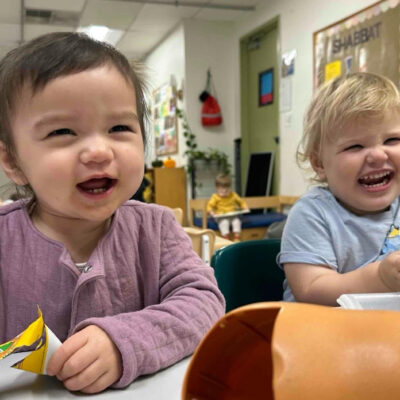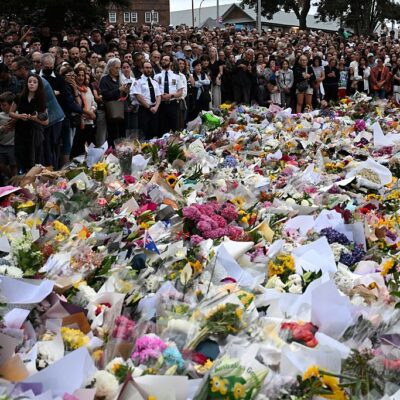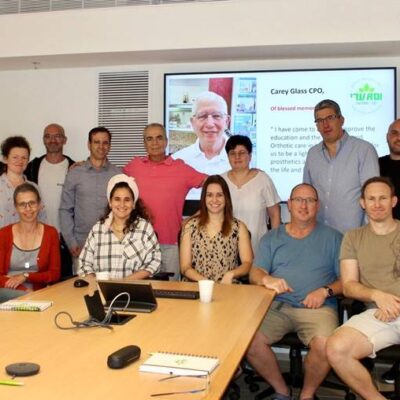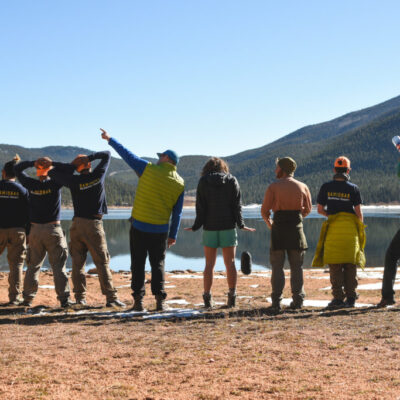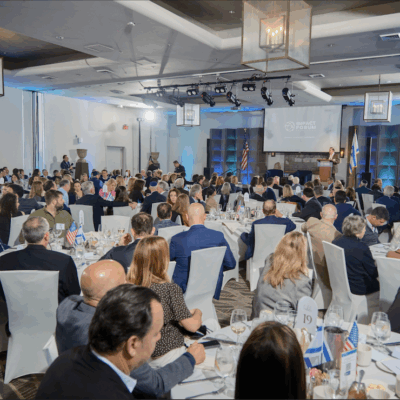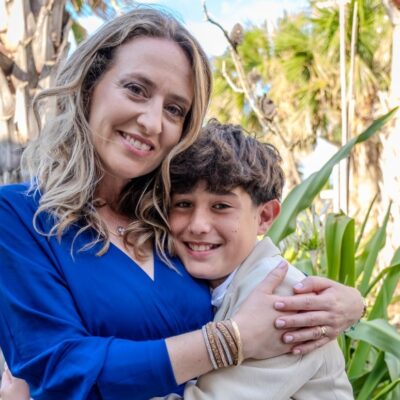Opinion
HOLIDAY THOUGHTS
Solidarity from Sinai: Strengthening our covenant
The American War of Independence didn’t create an American People, and the storming of the Bastille didn’t create the French Nation. In both cases, it was the establishment of a sort of contract among people, groups or states — the U.S. Constitution and the Declaration of the Rights of Man and of the Citizen, respectively — which served as the basis for their shared existence into a people or a nation.
Those foundational moments were inspired by Enlightenment thinkers like Thomas Hobbes, John Locke and Jean Jacques Rousseau, who put forth the idea that a society is established by means of an agreement among individuals — not the supposed divine right of kings, but the consent of the governed expressed in a “social contract.”
In a social contract, individuals and groups establish a transaction: They agree to forgo some of their “natural freedoms” so that greater freedom and prosperity can be attained by more people and by society as a whole. Without that contract (and a power structure that guarantees its survival) Hobbes writes in Leviathan that there will be no society — “and which is worst of all, (there will be) continual fear, and danger of violent death; and the life of man, (will be) solitary, poor, nasty, brutish and short.”
Judaism had its own social contract, the one we celebrate every Shavuot when we remember that moment 3,500 years ago when we stood together at the foot of Mt. Sinai. But Judaism’s social contract is unique — a covenant that not only binds us together but, in the traditional view, cements a bond between us and God until the end of times: “I am making this covenant… not with you alone, but both with those who are standing here with us this day before the Lord our God and with those who are not with us here this day” (Deuteronomy 29:14-15).
In a Jewish covenant, there’s a transcendent dimension: On the one hand, it includes God, and on the other, it includes not only the present citizens but past and future ones as well.

In exploring the nature of social contracts and covenants, I have previously referenced Rabbi Lord Jonathan Sacks to illustrate the profound differences between these concepts. As Sacks eloquently explains:
“In a contract, two or more people come together, each pursuing their self-interest, to make a mutually advantageous exchange. In a covenant, two or more people, each respecting the dignity and integrity of the other, come together in a bond of loyalty and trust to do together what neither can achieve alone. It isn’t an exchange; it’s a moral commitment. It is more like a marriage than a commercial transaction. Contracts are about interests; covenants are about identity. Contracts benefit; covenants transform. Contracts are about ‘Me’ and ‘You’; covenants are about ‘Us.’”
A major philosophical difference is that social contracts see the individual, in Rousseau’s terms, as sujets de droit (subject of rights). In this paradigm, the individual is the ultimate source of rights, but the individual can also make a rational decision to delegate part of those rights into a collective if the perceived benefit justifies it. That decision gives the individual a claim on society, which owes compensation for the forfeiting of those rights. In this context, a sense of duty is necessary to maintain the rights of others; the individual is not intrinsically or essentially bound by a set of obligations.
In a covenant, individuals have mutual duties. This is the difference between a social contract’s bill of rights and a covenant’s additional bill of duties.
Am Yisrael is the greatest example of this difference. In social contracts, society has no intrinsic value; it’s just a transactional device to ensure the safety and flourishing of the individuals therein. We, however, have an intrinsic value as a collective: We have a mission, a mandate, a vocation, and as such there is a sacred dimension to our existence. The social contract is immanent, meaning its authority resides only with the individual humans that sign it. In a covenant, we are bound together in an inextricable web of mutuality in which what happens to one happens to all of us.
Oct. 7 made that interdependence excruciatingly obvious for many of us. Feeling the pain of that day and then then anguish, loneliness, anger, fear and determination of Israelis and of victims of antisemitism around the world was the ultimate test of peoplehood.
It also sadly made evident that a minority of Jews choose to separate themselves from the community and break the covenant of common destiny that we share. The real tragedy of anti-Israel Jews is not that their positions are morally abhorrent (though they are) but that they break the links of internal solidarity that make us a people. It’s not just what you believe that makes you part of my people or not, but your capacity to feel the pain of your fellow Jews — to cry with them, bleed with them and realize when your actions cause them unspeakable hurt. Belonging is not just a matter of belief or ancestry, but a willingness to bind your fate with that of your people.
On Shavuot, we read the moving declaration of Ruth to Naomi, which summarizes this idea beautifully. Naomi says to Ruth: “‘See, your sister-in-law has returned to her people and her gods. Go follow your sister-in-law.’ But Ruth replied, ‘Do not urge me to leave you, to turn back and not follow you. For wherever you go, I will go; wherever you lodge, I will lodge; your people shall be my people, and your God my God’” (Megillat Ruth, 1:15-16).
In this spirit, this Shavuot let’s commit to rebuild our covenant — to translate the pain into positive action. Let’s understand that we not only have rights but also obligations toward each other. Let’s realize that by having that covenant we can achieve things that we can never achieve alone.
How can we do this as funders? I have previously emphasized the importance of certain commitments that reinforce our sense of peoplehood and covenant. As we continue to face challenges, it’s crucial to revisit and remind ourselves of these commitments:
- Commit to cultivate and enhance your own sense of peoplehood. What can you do to feel more connected to other Jews and Israel? We spend a lot of time listening to what others think of us and pride ourselves on being open to their opinions, but do we spend enough time listening to our own? To Israelis? To students on campus that feel threatened? To Jews that want to connect more with their heritage?
- Peoplehood can’t only be about kinship — feeling the pain of your fellow Jews is necessary, but not sufficient. You need to put content into that peoplehood, which implies studying and learning Judaism and including Jewish practices in your life. Make personal decisions that enhance your Jewishness.
- Be vocal. Now is the time for moral clarity and calling out bad behaviors. Some of us may lose our seats in spaces ranging from university boards to social justice organizations. So be it. If you can’t bring your full self to a place — including your Zionism and your love for Israel — don’t be there. Don’t fall for Faustian bargains.
- Fight for the Israel you want. Israel is the collective project of the Jewish People, and it is the only Israel we have. You have a stake there. The leaders of the pro-democracy protests showed us that there’s no contradiction in fighting for Israel and against its government’s policies when they’re bad. In fact, they excelled at both.
- Re-center your philanthropy around Jewish causes. I welcome the awakening of donors to universities that stopped giving to hotbeds of hatred. It’s great to say no, but then to what do we say yes? Make a commitment to move your philanthropy to Israel and Jewish causes. There are woefully few us. Like you, I know many cases in which Jewish funders may make a $5,000 gift to the local federation and $50 million to an alma mater that doesn’t even need it. And if you want to fund universal causes like climate change, gender-based issues or poverty, there are many Jewish outlets to do that. This doesn’t mean defunding bridge-building initiatives but rather being clear about how they serve our short- and long-term needs.
- This is not time for egos, but for working together. Reach out to other funders and inspire your grantees to work together. Grantees are going to follow your lead if you walk the walk. That joint work is going to be another expression of our covenant.
This challenging time calls us to look inward and rediscover the strength that comes from our unity and shared commitments. Loving our own does not preclude loving others, rather the opposite, loving your own educates you in the practice of love, which then expands in concentric circles. But we must recognize that our solidarity and care begin within our own community. Now is the moment to embrace the profound joy of belonging to a resilient, caring community that has withstood adversity throughout history and emerged stronger.
In other words, to renew the covenant established when we stood together at the foot of Mt. Sinai.
Andrés Spokoiny is the president and CEO of the Jewish Funders Network.

 Add EJP on Google
Add EJP on Google
